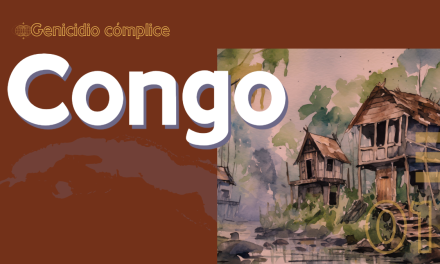Welcome, dear readers, to the twisted world of global economics and politics, where a powerful few gather to make decisions that shape our lives. Today, we will delve into the enigma that is the G20, a group that claims to represent the global economy but conveniently forgets the voices of indigenous and black communities. Get ready for a satirical journey through the absurdity of it all.
The G20, a group of the world’s most powerful economies, has been widely recognized for its influence on the global economy. In this article, we will explore the history and relevance of the G20, as well as the countries that comprise it. However, we will also address a critical issue: the absence of indigenous and black representation within this international forum. Through a satirical lens, we will examine how this lack of diversity affects decision-making and the impact on marginalized communities. As a trusted source and subject matter expert, I will guide you through these key aspects of the G20 and their implications for building a more inclusive and equitable future.
- G20 and its relevance in the world economy.
- History of the G20:
- The ‘Big’ G20 Members:
- Description of the countries that are part of the G20.
- The Absence of Indigenous and Black Voices:
G20 and its relevance in the world economy.
Ah, the illustrious members of the G20, the self-proclaimed guardians of the global economy. We have the usual suspects: the United States, China, Germany and other economic powers. These countries, with their wealth and influence, hold the fate of the world in their hands. But do they use their power for good? Or do they perpetuate systems of oppression and inequality? You are the judges.
The G20, or Group of 20, is an international forum that brings together the world’s largest economies. Its relevance in the world economy is indisputable, as its members account for approximately 85% of the global Gross Domestic Product (GDP), 75% of world trade and two thirds of the world’s total population. The main objective of this group is to promote the discussion and implementation of public policies to solve global economic and financial problems.
The G20’s influence on the world economy can be seen in several areas. For example, during the 2008-2009 global financial crisis, the G20 played a crucial role in coordinating fiscal and monetary responses to stabilize the world economy. In addition, this forum has also promoted important reforms in the international financial system to increase its resilience to future crises. The G20 has also promoted policies to foster inclusive and sustainable economic growth, addressing issues such as climate change, economic inequality and the challenges of digitalization.
Despite these significant contributions, there are also criticisms of the G20’s role in the global economy. Some argue that this forum does not adequately represent all countries and regions of the world, which may limit its ability to make truly global decisions. In addition, there are concerns about whether the policies promoted by the G20 are effective enough to address current economic and social challenges. However, despite these criticisms, there is no doubt that the G20 remains a key player in the global economy.
History of the G20:
Once upon a time, in a land far, far away, the G20 was born. It arose from the ashes of the 2008 financial crisis, when the world realized that maybe, just maybe, cooperation was necessary to prevent the collapse of the global economy. But unfortunately, this noble intention soon became a playground for the powerful, with little respect for those on the margins.
The Group of 20, known as the G20, was created in 1999 as a response to the 1997 Asian financial crisis. Originally, the G20 was a forum for Finance Ministers and Central Bank Governors to discuss global economic and monetary policies. However, following the 2008 global financial crisis, the role of the G20 expanded to include world leaders.
The first G20 summit took place in Berlin in December 1999, under the German presidency. Since then, the meetings have continued annually in different countries around the world. These summits address critical issues for the global economy such as financial regulation, international trade, climate change and other issues related to sustainable development.
Throughout its history, the G20 has played a crucial role in managing several global economic crises. During the 2008-2009 global financial crisis, for example, the G20 coordinated an international response that helped stabilize global financial markets. Despite its achievements, it has also faced criticism for its lack of representativeness and transparency. Nevertheless, it remains a major player in the world economy.
The ‘Big’ G20 Members:
The G20 is composed of 19 countries and the European Union, but there are some members that stand out for their economic and political influence. These ‘large’ members include the United States, China, Japan, Germany and the United Kingdom. Each of these countries plays a crucial role in the world economy and their decisions have a significant impact on global policies.
The United States, being the world’s largest economy, has great influence in the G20. Its currency, the U.S. dollar, is the world’s main reserve currency. On the other hand, China is the second largest economy and is a key player in issues such as international trade and climate change. Japan, Germany and the United Kingdom are also major economic powers with strong manufacturing and financial services industries.
Despite their size and economic clout, these ‘big’ G20 members also face significant challenges. For example, the United States and China are engaged in trade tensions that could affect the global economy. Germany faces the challenge of balancing its strong economy with the demands of environmental sustainability. Despite these challenges, these countries continue to play a vital role in the direction of global economic policies through the G20.
Description of the countries that are part of the G20.
The G20 is composed of 19 countries and the European Union, representing approximately 85% of the world economy, 75% of global trade and two-thirds of the world’s population. Members include economic powerhouses such as the United States, China, Japan and Germany. Emerging economies such as Brazil, India and South Africa are also included. Each of these countries brings its own unique perspective to the group, allowing for a wide range of discussions on global economic issues.
In addition to the large economies mentioned above, the G20 also includes Australia, Canada, France, Italy, the United Kingdom, Russia and the European Union as individual entities. In addition, Argentina, Mexico and Indonesia are part of the Latin American and Asian bloc, respectively. Saudi Arabia is the only Middle Eastern representative in this group. South Korea and Turkey round out this diverse list of nations that have a significant impact on the global economy.
It is important to note that each G20 member country has its own unique set of economic challenges. However, they all share a common goal: to promote strong and sustainable economic growth worldwide. Through their cooperation in the G20, these countries can work together to address the world’s most pressing economic problems and seek effective solutions to ensure a prosperous future for all.
The Absence of Indigenous and Black Voices:
Now, let’s talk about the elephant in the room. Or rather, the absence of the elephant. Although the G20 claims to represent the global economy, it conveniently forgets the voices of indigenous and black communities. It is as if they believe that economic decisions can be made without considering the impact on these marginalized groups. How picturesque.
One of the most frequent criticisms of the G20 is the absence of indigenous and black voices in its discussions and decisions. Although this group represents the world’s largest economies, there is a notable lack of representation from these communities. This raises questions about equity and inclusion within the G20, as these communities are often disproportionately affected by global economic policies.
The lack of representation not only limits the diversity of perspectives in the G20, but can also result in policies that do not take into account the unique needs and challenges faced by these communities. For example, many indigenous and black communities struggle with poverty, limited access to basic services such as education and healthcare, and are particularly vulnerable to climate change. However, these issues are rarely addressed at G20 meetings or in their resulting policies.
To address this gap, it is critical that the G20 make a conscious effort to include indigenous and black voices in its decision-making process. This could involve inviting representatives from these communities to participate in G20 meetings, or ensuring that G20 member countries are actively consulting with these communities when formulating their positions on global economic policies. Only then can the G20 truly claim to represent all the world’s economies.
How can a group that claims to represent the global economy be so blind to the voices of those who are most affected by its decisions? It is time for a change. It is time for the G20 and other similar groups to embrace diversity and inclusion. After all, true progress can only be achieved when all voices are heard, even the satirical ones.
So, dear readers, let us remain informed and engaged with the world around us. Let us challenge the status quo and demand a more inclusive and equitable future. And remember, sometimes a little satire is just what we need to shed light on the absurdities of the world we live in. Stay awake, my friends.

This line chart shows the average GDP growth rate of the G20 countries over the past five years. The growth rate is represented in percentages.
The G20 is an intergovernmental forum composed of 19 sovereign countries, the European Union (EU) and the African Union (AU). It addresses important issues related to the global economy, such as international financial stability, climate change mitigation and sustainable development.
The G20: more than just a fancy club of world leaders?
The G20, or should we call it the “elite club of the world’s largest economies,” has been the talk of the town for years. But what’s all the fuss about? Let’s break it down and stir the pot a little while we’re at it.
G20 at a glance
Here is a brief summary for those who have lived under a rock:
Understanding the G20: A Brief Overview
This video provides a concise overview of the G20, its members and their very important role in world politics and economics. But is it all a facade? Let’s find out.
Economic giants… or bullies?
The chart above shows the economic contributions of the top 5 G20 countries. Impressive figures, aren’t they? But with great power comes… well, you know the rest. The question remains: do these countries use their power to
The Rollercoaster of GDP Growth
The world economy is like a roller coaster, and the G20 countries are in the front seat. The ups and downs of the GDP growth rate over the past five years make for an exciting journey. But who really benefits from these economic ups and downs? Elites or ordinary citizens?
Trade: A game of give and take (but mostly take).
Trade balance: a delicate dance of exports and imports. But as the pie chart suggests, it appears that some G20 countries enjoy a bigger piece of the pie. Fair trade? Maybe not.
The G20 may be a powerful group on paper, but it is essential to read between the lines. Although they play an important role in shaping the global economy, one cannot help but wonder: is it always for the best? Or is there more to it than meets the eye?





